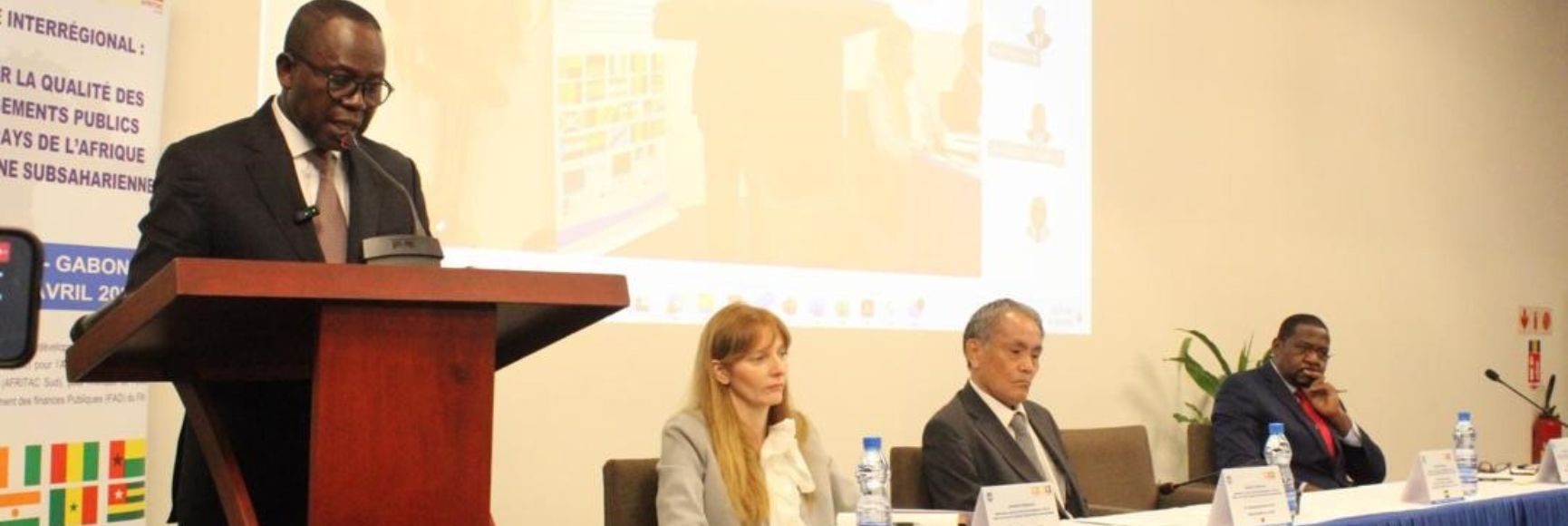
By Sandeep Saxena, Delphine Moretti, and Raju Sharan[1]
Digitalization of public financial management (PFM) has received increased attention around the world. Governments are looking to leverage technological innovations to transform the delivery of public services. The COVID-19 pandemic provided further motivation to accelerate the pace of digitalization. All around the globe, several innovative tools and modes of service delivery have emerged within the past year, and many more are in progress. These increased ambitions, however, need to be matched with a coherent strategic framework to enable countries to prioritize investments in digitalization and to optimize benefits.
Recognizing the benefits of sharing experiences and peer learning, the IMF’s Fiscal Affairs Department organized a regional seminar on “Digitalization of Public Financial Management for Improved Service Delivery”—the first of its kind on this topic for South and South East Asian countries. Over 125 participants from 14 Asian countries attended the seminar which took place between September 20-24, 2021. The seminar was organized in collaboration with the Fund’s South Asia Training and Technical Assistance Center (SARTTAC) and Capacity Development office in Thailand (CDOT), it had three overarching objectives:
- Take stock of the progress achieved by South and Southeast Asian countries in the digitalization of their PFM systems.
- Explore the potential offered by emerging technologies elsewhere and identify strategic issues and choices, as countries move further in their digitalization efforts.
- Sensitize participants to results achieved – i.e., what digitalization of PFM can concretely achieve.
Each day of the seminar was devoted to a specific subtheme, focusing on one aspect of the issue, and the final day tied the threads together and provide key messages on strengthening the link between a digital PFM and service delivery by governments to ensure better spending outcomes. The speakers included senior policymakers at national and subnational levels, subject experts from international institutions, such as the OECD, World Bank and the IMF, industry experts, and practitioners from several advanced and developing countries.
- A guiding vision and strategy. Digitalization is no longer an option but a necessity if governments are to maintain their credibility on delivering services to citizens. Digitalization efforts need to be driven by a longer-term vision and a well-coordinated strategy that cuts across government ministries and organizations and adopts a citizen centric approach.
- An enabling environment. Transition to a digitalized public financial management requires a supportive political environment, increased and new capacities, as well as, crucially, a change in institutional models and traditions, including more inter-department and inter-agency cooperation—a challenge highlighted also by the experience of most Asian countries who have taken the first step through the implementation of financial management information systems (FMIS). The focus initially should be on digitalizing key PFM processes. In that regard, payments and cash flow management are seen as particularly crucial.
- An agile approach. Governments should look to adopt a flexible, agile and modular approach to the digitalizing PFM, accompanied by suitable business process improvements. The conventional project-based approach to application development using a “waterfall” methodology needs to be replaced with an “agile” approach to application development and funding. The preferred approach requires an iterative solution development backed up with sustained investments (of smaller amounts) over a longer period. An agile funding approach promotes and supports innovation.
- Fundamental building block. The experience of countries that are at the forefront of adopting new technological PFM solutions points to the need of solid building blocks in particular a sound FMIS and data governance, as well as motivated and dedicated multi-disciplinary teams with an appropriate blend of skills and experience. Credibility of digitalization efforts also depend on a clear identification and articulation of problems that can be solved with digitalization and data.
- Feedback to spending policy. Digitalization efforts so far have led to improvements in budget credibility and transparency in public spending, but allocative efficiency remains a concern in many countries. The experience of countries that have succeeded in strengthening the feedback loop between expenditure management and expending policy demonstrates that countries can and should use the wealth of data available in FMIS and elsewhere in public systems for developing evidence-based fiscal decision making.
- Understanding users and their needs. Improving service delivery with digitalized PFM requires understanding the users - their needs, motivations, challenges and limitations – a critical success factor that often does not receive due attention in more conventional project-based application development approaches. Performance measurement of digitalization solutions needs to consider how well the identified needs of the users—both external and internal—are satisfied.
- Educating users and government staff. Dealing with a pessimistic approach to online financial services—that may exist in some developing countries—requires educating people about the benefits of online services and investing in systems and processes that increasingly make it easier for the beneficiaries to interact with the government and receive services.
- Proactive management of risks. Increased digitalization also bring enhanced exposure to risks, particularly risks of cyberattacks. Addressing cybersecurity issues requires a three-pronged approach—that involves educating people, leverage advancements in technology, and strengthening processes—to develop a layered defense mechanism. Business continuity plans should consider the criticality of processes, ensure regular switching of operations between Data Centre and Disaster Recovery Centre and employ clear and crisp communication. Plans must evolve organically in response to changing needs and should be periodically tested.
The seminar brought together real-world experiences, discussed methods to deal with challenges of digitalization and informed participants of the potential for future advancements by leveraging existing and emerging technologies. It reinforced the idea that digitalization is not just a matter of adopting new technology, but requires a transformation of an organization’s processes, its governance structure, data management, and human resources skills.
[1] Sandeep Saxena is a Senior Economist in the IMF’s Fiscal Affairs Department. Delphine Moretti and Raju Sharan are IMF’s Regional PFM Advisors for South East and South Asia respectively.
Note: The posts on the IMF PFM Blog should not be reported as representing the views of the IMF. The views expressed are those of the authors and do not necessarily represent those of the IMF or IMF policy.





